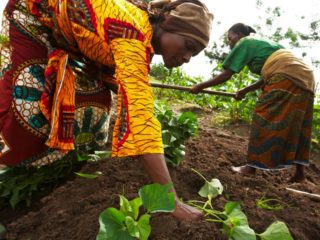Poor roads responsible for high cost of garri in Calabar
Professor Anthony Eneji, Cross River Commissioner for
Agriculture and Natural Resources, has said the current high cost of Garri in
the state is mainly due to poor roads network.
Eneji said farmers and garri
sellers pass through a lot of stress in a bid to bring the commodity to markets in the
state.
He said farmers do not have access to improved cassava
varieties and relevant inputs to enable them to increase their production at
lesser costs.
He said efforts were on by the state government to
address most of these challenges.
"Apart from bad roads, we also have the issue of new
varieties of cassava stems as approved by the International Institute for
Tropical Agriculture (IITA), Ibadan.
"We are making efforts to procure the new cassava
varieties and as you know it costs money to bring them.
"You also have the issue of high demand for garri as a
staple food in the state
"Where there is high demand but less the supply, it is
natural law of economics for prices to rise.
"We are also trying to distribute inputs to farmers,
especially fertilizers for this year's farming season," Eneji said.
The commissioner said that the government had appealed to
the Federal Ministry of Agriculture to create cassava multiplication centres in
the three senatorial districts of the state.
"As the largest producer of cassava in Nigeria, Cross
River needs to have cassava multiplication centres, to boost our output.
"Rather than we running to IITA to buy, other states
should come and buy from us, this will boost our production output," he
said.
Eneji said that the state through the World Bank Assisted
Fadama III financing project was stepping up its cassava production value
chain.
A market survey conducted by NAN showed that, a basin of
garri in Calabar currently sells for N12,000 as against the former price of
N5,000.
Three cups of garri goes for N200 as against the former
price of N100.




Comments
Post a Comment